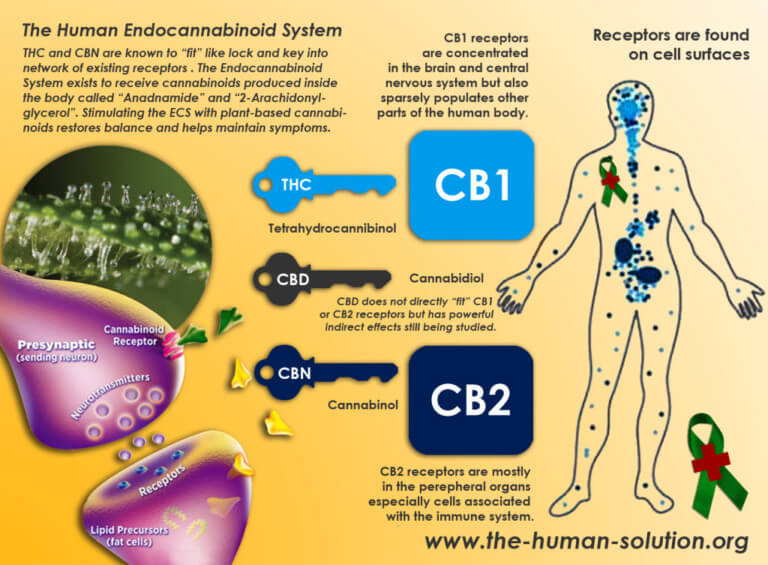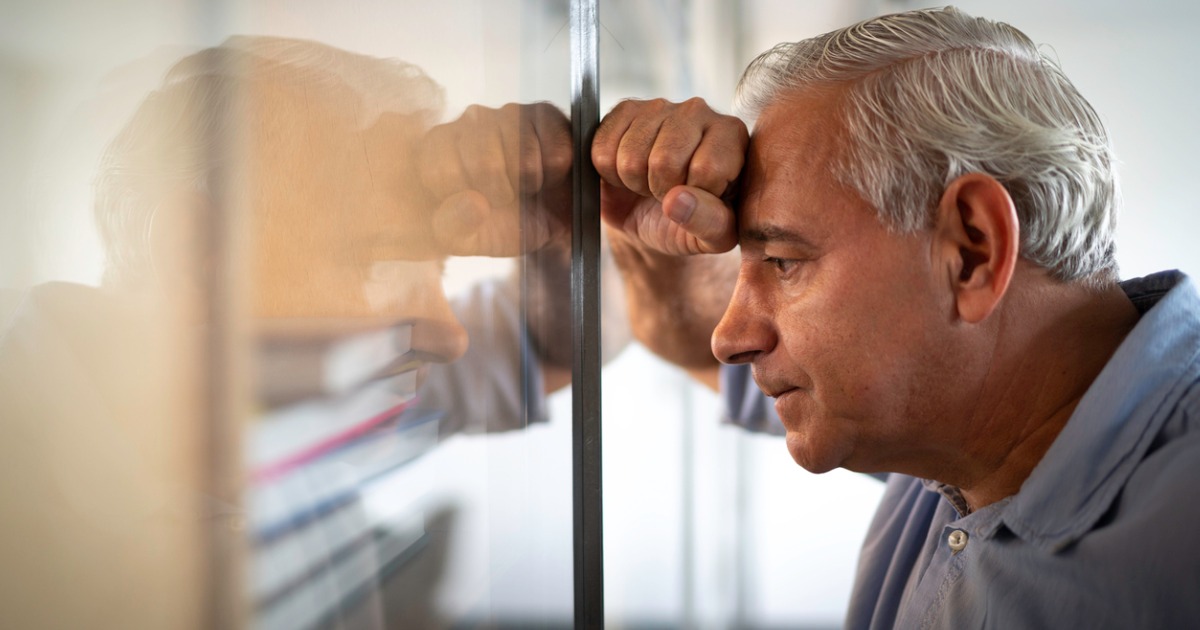Patients can now acquire medical marijuana for various qualifying conditions thanks to the beneficial qualities of cannabis. While it’s often issued for specific conditions, it can also be used for certain symptoms, with severe & chronic pain being a prime example.
Severe and chronic pain refers to cases where sufferers experience long-lasting or persistent pain. For instance, they may experience pain lasting hours or experience regular episodes of pain for months. This can apply to things like injuries or to conditions that cause chronic pain.
While pain medications are often used for chronic pain, these can result in unwanted side effects. As such, medical marijuana has become a very popular alternative for dealing with painful conditions.
What Is Chronic Pain & How Is It Treated?
While everyone experiences pain at some point, those who experience severe or chronic pain need to seek treatment to deal with the issue. Severe or chronic pain is when you suffer from pain that’s both distressful and long-lasting. For instance, those who experience pain for hours, weeks, or even months need treatment for chronic pain.
Severe or chronic pain can come about for many reasons. For example, those who experience physical injuries often suffer from persistent pain that’s hard to manage. It can also refer to cases of neurological or neuropathic pain that last for a long time and won’t go away with minor treatments such as over-the-counter medicines.
It can also be caused by various serious conditions. For example, some conditions like fibromyalgia and endometriosis are characterized by persistent, hard-to-manage pain, whereas patients with conditions such as cancer and multiple sclerosis (MS) often experience chronic pain as a result of their condition.
When the pain is persistent and can’t be treated by regular methods, sufferers often use treatments such as physical therapy and medications such as opioids. Regrettably, opiates can slow neural activity in the brain, and the longer they’re used, the more pronounced the effect becomes. This often leads to physical lethargy and emotional ‘flat-lining’ into depression.
When opiates interact with the receptors in the brain, the brain interprets them as signals of well-being and releases dopamine. Normally this is a positive system and rewards us for achievement, physical action, or love with others, but with opiates it is a recipe for addiction and depression.
Symptoms of opiate-driven depression are similar to ‘traditional’ depression and include isolation, loss of interest in hobbies, and failures at work. The hard reality of this cycle sets in quickly and requires great effort to escape. If you’re struggling with opiate addiction, please contact Narcotics Anonymous or the rehab center of your choice for help.
Fortunately, there are ways to manage chronic pain without opioids. Among these, medical marijuana has become a popular alternative treatment as it helps relieve pain with minimal risks.
Medical Marijuana & Chronic Pain
Of the many physical and mental issues medical marijuana is used for, treating chronic pain is the most prevalent. Research shows that chronic pain has always been the most common qualifying condition reported by patients seeking medical marijuana. This is largely due to the effects cannabinoids have on the body.
Many users will notice that cannabis delivers a physically relaxing and relieving sensation when it’s used due to THC interacting with the body. This is useful for reducing the sensation of severe or chronic pain and making it easier to handle.
It isn’t just THC that helps with chronic pain, either. A study on the use of cannabinoids in difficult-to-manage pain found that CBD also helps by providing analgesic and anti-inflammatory properties for the body. As such, some patients who suffer from chronic or severe pain may use CBD as an alternative to marijuana.
Medical marijuana is also helpful as it provides a more natural and less harmful alternative to traditional pain medications. Opioids can often lead to addiction and other unwanted side effects, whereas cannabis and CBD minimize these risks.
Related: The Difference Between CBD & THC
How Medical Marijuana Helps with Chronic Pain Symptoms
As well as helping to counteract the sensation of pain, medical marijuana can also help with many symptoms and complications that come along with chronic pain, and with many conditions that feature chronic pain as a symptom, such as Arthritis, Parkinson’s Disease, and various forms of Cancer.
Severe and chronic pain can often lead to excessive fatigue and sleep problems. Some marijuana strains counteract fatigue by providing stimulating effects whereas some can promote sleep and help users get a more restful night of sleep.
Those suffering from severe and chronic pain may also experience severe mood problems such as depression, anxiety, and stress. Medical marijuana has been shown to relieve mood issues and promote a more positive and optimistic state of mind.
If you haven’t heard of it, there is a fascinating part of your physiology called the endocannabinoid system. This is part of us from birth and is an internal (‘endo’ meaning internal) system that regulates a wide variety of body functions, including fertility, cognitive processing, appetite, mood, memory, and processing the ‘exogenous’ cannabinoids in medical marijuana that you vape or ingest.
These wonderful compounds are also what you feel during a ‘runner’s high’ or other physical exercise. A 2007 article describes its importance and functions:
“The endocannabinoid system has been recently recognized as an important modulatory system in the function of brain, endocrine, and immune tissues. It appears to play a very important regulatory role in the secretion of hormones related to reproductive functions and response to stress.”
Unfortunately, our supply of these amazing compounds that regulate how we feel can become deficient over time, our bodies fall out of balanced homeostasis, and health difficulties are produced. By supplementing your system with medical marijuana for chronic pain and getting exogenous cannabinoids, you can promote harmonic balance, which is what the body needs to achieve in order to heal naturally.
How to Use Medical Marijuana for Chronic Pain
If you’re experiencing severe or chronic pain, there are various methods of cannabis consumption that can help. Whether you prefer to inhale cannabis, use convenient cannabinoid-infused products, or even use non-psychoactive CBD products, all kinds of cannabis products can help treat pain.
Smoking cannabis is a good option for those who want to tackle pain quickly and efficiently. Smoking brings on immediate relaxing and pain-relieving effects. Vaping offers a similar experience but also reduces the harsh effects of smoking as you inhale smooth marijuana vapor.
Cannabis tinctures offer a convenient alternative for those who don’t want to inhale cannabis. These are used by applying a dose of oil under your tongue. You can also use oral products such as cannabis edibles or capsules.

Topical products such as cannabinoid-infused creams and lotions can also be helpful for pain. You apply these directly to your body wherever you’re afflicted by pain. You might also want to use non-psychoactive CBD products such as oils, edibles, and vape products if you want to avoid getting high.
How to Get Medical Cannabis
If you want to use medical marijuana for severe or chronic pain, then the best way to do so is to apply for a medical marijuana card via your state’s MMJ program. This will allow you to buy high-quality medical marijuana and CBD products from dispensaries across the state.
Qualifying patients in Florida can get a medical card in a few simple steps. First, you must visit a medical marijuana doctor who will assess your symptoms and health records to see whether you qualify. If they deem you eligible, you can then apply for a medical card online and receive it within a couple of weeks. Once your medical card has been approved, you can use it to visit medical dispensaries and get the cannabis and CBD products you need to help manage chronic pain.
The Takeaway
Pain can come in many forms, but those who experience severe and/or chronic pain can seek out medical marijuana treatment to help. The cannabinoids in cannabis help relieve pain and inflammation as well as having benefits for your sleep and mood.
Treat chronic pain naturally with medical marijuana by getting your medical marijuana card. The first step is to schedule an appointment with a medical marijuana doctor. We make it fast and easy!
GET CERTIFIED FOR MEDICAL MARIJUANA IN FLORIDA
MY FLORIDA GREEN sets the green standard in marijuana medical care. Find the city nearest you and get certified!










